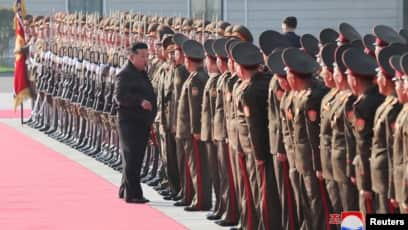The United States and NATO confirmed Wednesday that North Korea has deployed troops to Russia, marking a significant shift in the war. U.S. officials view this as evidence that Russian President Vladimir Putin has allowed foreign military involvement, previously considered off-limits.
White House National Security Advisor John Kirby reported that North Korea moved at least 3,000 soldiers to eastern Russia in October, traveling by ship from the Wonsan area to Vladivostok. These troops are now stationed at three separate training sites in the Russian Far East.
U.S. Defense Secretary Lloyd Austin first confirmed the deployment, following South Korea’s intelligence report that initially indicated the presence of 1,500 North Korean soldiers in Russia, later revised to 3,000. South Korea’s National Intelligence Service has warned that up to 10,000 North Korean troops may be deployed by year-end.
NATO also verified the deployment, sparking protests from several European nations, including Germany and Austria, which summoned North Korean diplomats. In response, the European Union announced additional sanctions against Russia and North Korea, warning of further action if North Korean soldiers are found involved in the war against Ukraine.
The White House has outlined plans for expanded sanctions against enablers of Russia’s war, while military experts anticipate an increase in military aid to Ukraine. However, details regarding the specific role of North Korean troops remain unclear.
North Korea’s involvement has raised concerns about its long-term relations with Europe. Victor Cha of the Center for Strategic and International Studies noted that this move could have lasting consequences for North Korea’s diplomatic ties with the EU, traditionally viewed as more neutral than the U.S.
Russia has dismissed reports of North Korean troop involvement as “fake” and warned of potential security consequences for South Korea, following Seoul’s pledge to take “phased” actions in response to growing North Korea-Russia military cooperation.


